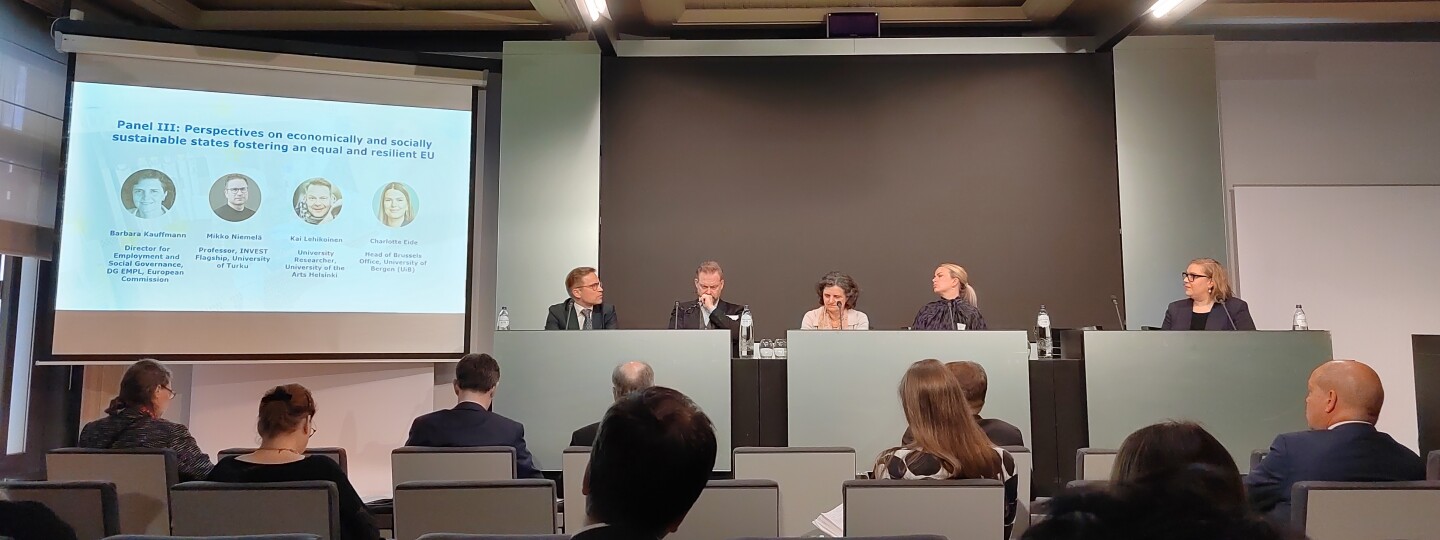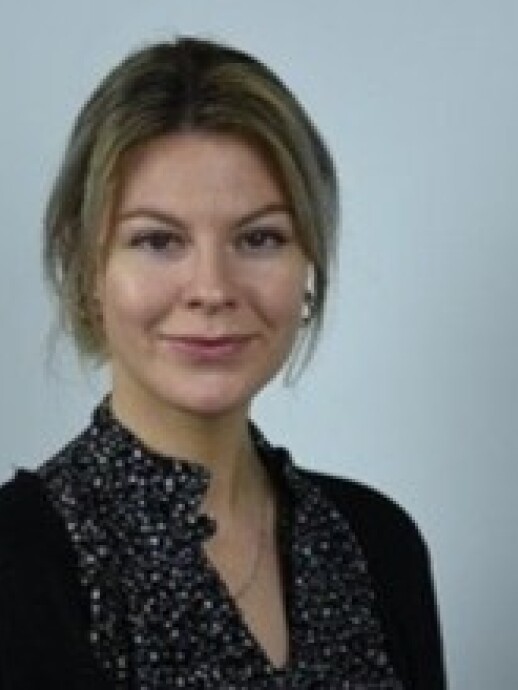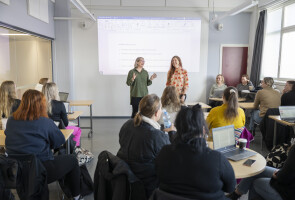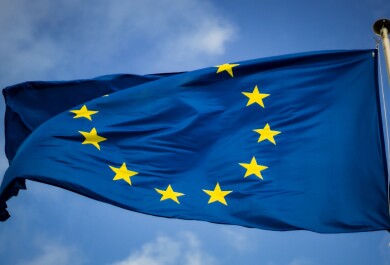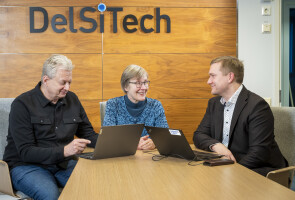The higher education institutions in Turku, together with other Finnish and Nordic partners in Brussels, organised a joint event The Role of Higher Education Institutions in Ensuring the EU's Competitiveness and Resilience. The event took place in Brussels during the Research and Innovation Week launched by the European Commission.
The event highlighted the important role of universities and universities of applied sciences in addressing the EU's competitiveness and sustainability objectives and challenges. The event promoted dialogue between policy makers, higher education institutions and industry. It attracted a large number of participants from Europe and Brussels.
Vice Rector of the University of Turku Kalle-Antti Suominen, Rector and President of Turku University of Applied Sciences Vesa Taatila, Professor of Sociology at the University of Turku and Research Area Director of the INVEST Research Centre Mikko Niemelä and Professor of Industrial Management at Åbo Akademi University Kim Wikström participated in the discussions as representatives of the higher education institutions of Turku. In addition, representatives of other Nordic higher education institutions, the European Commission, the European External Action Service and the European University Association were among the speakers.
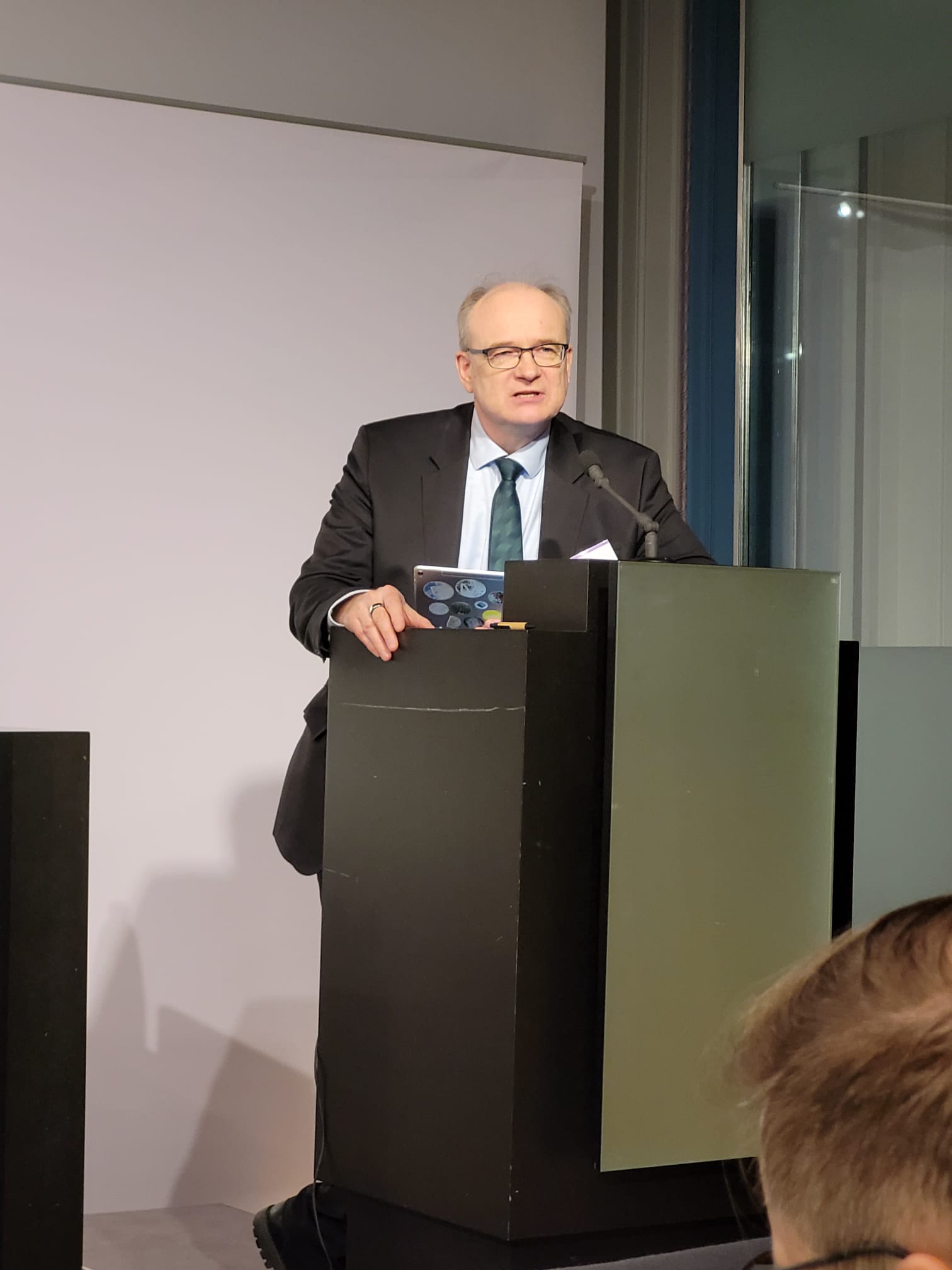
Higher education institutions play a key role in promoting objectives and addressing challenges
The event highlighted the key role of higher education institutions in the EU's strategic objectives. Discussions showed that the EU should emphasise the role of higher education in building a sustainable and competitive Europe, integrate scientific views more strongly into policy-making, and ensure adequate funding for research.
The essential role of both basic and applied research in future innovation and competitiveness was also highlighted. Improving the efficiency of knowledge transfer and the use of research throughout the value chain emerged as key themes. Scientific quality should also guide decision-making in future EU Framework Programmes.
The importance of strategic autonomy, transparency and scientific freedom in achieving EU objectives was also emphasised. Academic freedom is a key factor in supporting the sustainability and democracy of the EU and in promoting scientific literacy in society.
Attracting and retaining a skilled workforce in Europe was identified as a critical challenge. This requires the promotion of attractive research careers and diverse doctoral degrees as part of the supply of skilled labour. Developing skills, improving links with the labour market and removing barriers to international talent were identified as key measures to be promoted.
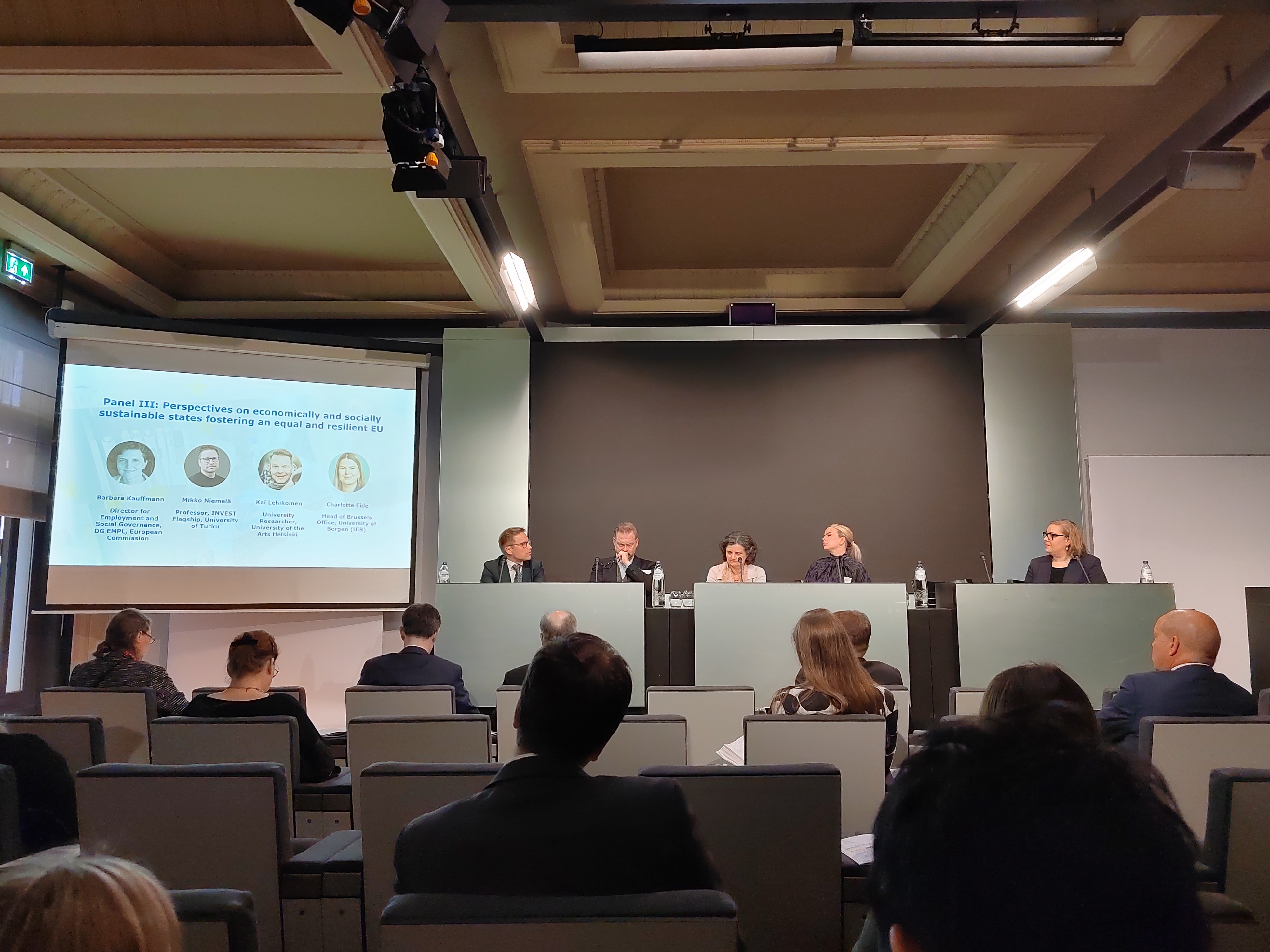
Emphasising research-based knowledge amid global changes
The discussions highlighted the importance of digital transformation, artificial intelligence and space exploration, and called on Europe to catch up with global leaders in these areas. Furthermore, there was consensus on the need to act decisively and with scientific knowledge against climate change and biodiversity loss.
The contribution of higher education to defence and security in the new geopolitical context, including NATO membership and interest in the Arctic, was highlighted. The contribution of the creative arts and social sciences in promoting diversity of thought was also discussed. Furthermore, the discussion addressed the issue of transforming policies into practice and the challenges of reducing EU bureaucracy.
